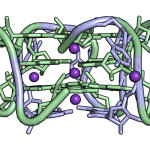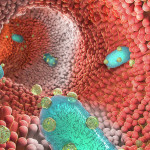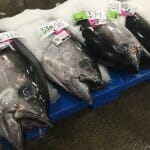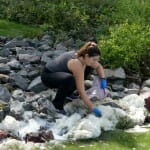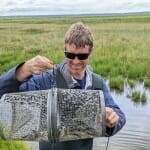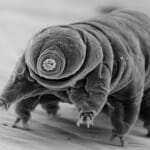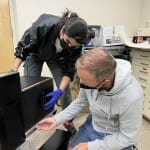Tag Research
With $9.3 million investment, UW–Madison will establish the Wisconsin Rural Partnership
Through research, outreach activities and partnership development, the effort will address the unique challenges facing rural communities Read More
UW research in 2022: From restored prairie to scorpion venom to the sewer
Here are the science stories on campus during 2022 that wowed and inspired us. Read More
UW–Madison increases research expenditures by $16 million, retains top 10 research institution ranking
UW–Madison remains the eighth-ranked research institution in the nation among public and private universities and saw an increase in research spending from 2020 to 2021. Read More
Folds in pUG molecules turn off genes and could provide clues about human disease
A curlicue RNA molecule dubbed a pUG can silence gene expression in roundworms, according to new findings. Researchers are using what they've learned to study human pUGs and their role in our own gene expression. Read More
Study finds that big rains bring big algae blooms… eventually
Phosphorus is only one part of the algae bloom recipe, research shows. Other key factors at play are calm winds, warm surface waters and a low abundance of tiny crustaceans called zooplankton. Read More
UW researchers working to improve and simplify models for how PFAS flows through the ground
Researchers found that several factors have a major influence on where and how long harmful PFAS chemicals stay locked in the ground before flowing below the water table. Read More
Marine Protected Area creates spillover benefits for tuna fishing in Hawaii
The study showed that catch rates in waters close to the protected area increased by about 54% for yellowfin tuna, about 12% for bigeye tuna and about 8% across all fish species. Read More
Understanding freshwater foam may help in fight against PFAS “forever chemicals”
Research in the School of Engineering will advance our understanding of how PFAS chemicals behave in diverse aquatic conditions. Read More
Despite commitments, Brazil’s beef sector tainted by purchases from protected lands in Amazon basin
Despite improvements by meatpackers to keep their supply chains free of cattle grazed on protected or illegally deforested lands, many slaughterhouses in Brazil — the world's top beef exporter — continue to purchase illegally pastured animals on a large scale, a new study shows. Read More
Improved understanding of early spinal cord development paves the way for new treatments
Researchers at the University of Wisconsin–Madison are developing the means to turn stem cells into a wide range of specific types of spinal cord neurons and cells in the hindbrain — the critical nexus between the spinal cord and the brain — paving the way for improved prevention and treatment of spinal cord disease. Read More
UW’s Monica Kim named MacArthur Fellow
Historian and UW–Madison faculty member Monica Kim has been awarded a 2022 MacArthur Fellowship, also known as a "genius grant," for her work uncovering the experiences of ordinary people caught in war and complicating conventional narratives of conflict. Read More
Lightning strikes shape tropical forests
New UW–Madison research helps establish lightning as an environmental driver that may dictate what trees will make up tropical forests in the future. Read More
New institute will probe biology in the absence of water
The microscopic, hardy tardigrade. Image courtesy of National Park Service They’re microscopic, they have eight legs and they basically resemble tiny, wrinkly bears. Read More
X(ray) marks the spot in elemental analysis of 15th century printing press methods
Two UW–Madison researchers are part of a large, interdisciplinary team that is analyzing historical texts, including pages from a Gutenberg bible and Confucian texts, with a technique that could offer insights into early printing methods. Read More




